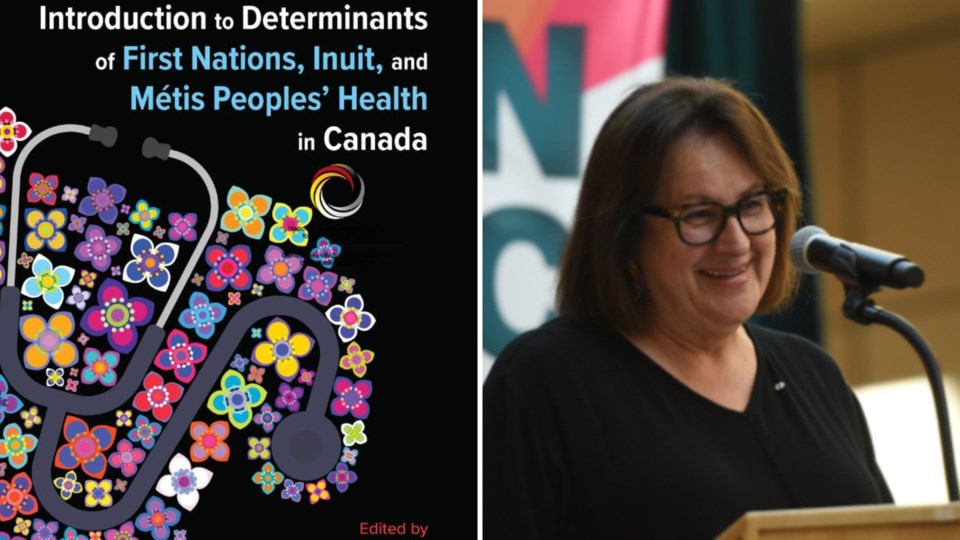A new textbook, which was compiled by a team of editors based at UNBC, features Indigenous voices and experiences regarding decolonization in health care.
The undergraduate-level textbook is called Introduction to Determinants of First Nations, Inuit, and Metis Peoples’ Health in Canada.
It was compiled by an expert team of editors connected with the National Collaborating Centre for Indigenous Health (NCCIH) which is based at UNBC, who gathered a powerhouse of contributions from primarily Indigenous academics, community leaders, health practitioners and artists.
It addresses the ongoing impacts of colonialism on Indigenous health and offers strategies to transform health care systems throughout the country in a compact paperback form.
The book weaves together critical theory and analysis, storytelling, poetry and vibrant artwork.
“This book draws on community wisdom, contributions and intervention. It’s meaningful and relevant to a variety of audiences in health care, universities and communities. Indigenous people, non-academics and community members, will see themselves reflected here,” said editor Margo Greenwood, who is a Cree scholar and professor of education and First Nations studies at UNBC.
“This textbook pushes far beyond the current limitations of narratives around Indigenous health and colonization,” adds editor Sarah de Leeuw, who is an award-winning creative writer and Canada Research Chair in Humanities and Health Inequities with the Northern Medical Program.
“It also provides an engaging curriculum for an entire term between two covers. Each chapter offers learning objectives and critical thinking questions and activities. It’s designed to be accessible and practical.”
The NCCIH has produced an accompanying series of eight videos featuring discussions with some of the editors and authors of Introduction to Determinants of First Nations, Inuit, and Métis Peoples’ Health in Canada.
The videos offer insights into key concepts in the book, and can be used as stand-alone learning tools.
Topics related to specific chapters include forced sterilization, the power of storytelling, Inuktut as a public health issue, creating safer faculties of medicine for Indigenous peoples, Indigenous food sovereignty, and returning birthing practices to Indigenous communities.



